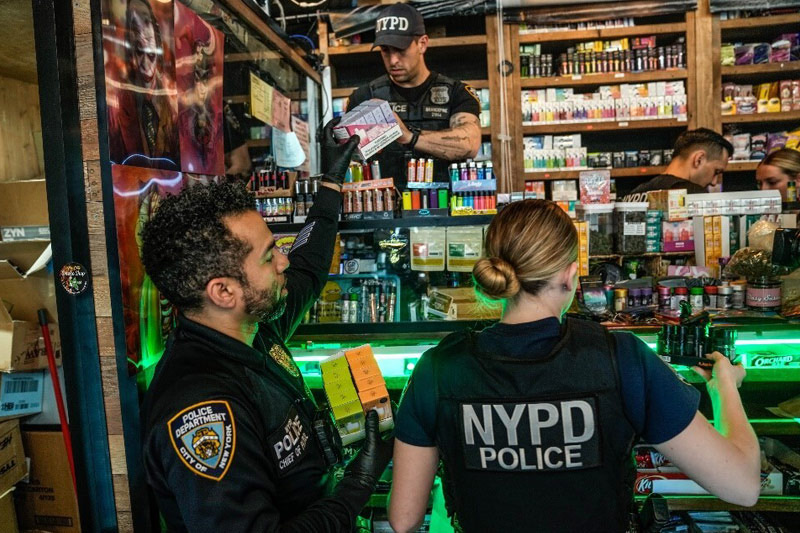In July, more than 750 illicit storefronts in New York City were shut down as a part of a large-scale crackdown following the state’s decision to grant local municipalities greater authority to search and close illegal cannabis dispensaries.
The multi-agency operation, known as “Operation Padlock to Protect,” involved the Sheriff’s Office, the New York City Police Department, and the Department of Consumer and Worker Protection. The operation seized a total of $41 million in illegal products and issued penalties exceeding $65 million. This comes after three years of lax regulation, which allowed thousands of unlicensed cannabis sellers to flourish. These illegal shops have not only outnumbered the struggling dispensaries in the legal market, but have also outcompeted the legal dispensaries, which currently total to 210 stores across the state.
“This is not just about an unlicensed cannabis shop selling weed; they are undermining the legal market — the people who follow the rules — by evading taxes, distributing untested products, and jeopardizing the safety of our neighborhoods,” said Deputy Mayor for Public Safety Philip Banks III.
When New York legalized the drug in 2021, officials at the newly established Office of Cannabis Management (OCM) aimed to avoid strict enforcement of its regulations, fearing that doing so would “recriminalize” the drug. In an effort to promote equity, particularly for those disproportionately impacted by the war on drugs, OCM created strict eligibility requirements for obtaining licenses. However, these measures unintentionally made it difficult for marginalized applicants to receive a license. This has resulted in the system facing numerous litigations and bureaucratic slowdowns.
One such lawsuit, filed in 2023 by a group of military veterans and later joined by medical-marijuana companies, accused the cannabis regulator of discrimination. This legal challenge, among other factors, has contributed to the slow launch of legal dispensaries, and the uncontrollable boom of illegal ones.
New York Governor Kathy Hochul, who had previously called the rollout of legal cannabis a “disaster,” said on July 31st: ‘‘Today, I am pleased to join Mayor Adams and other officials to celebrate a milestone and recognize the enforcement teams who shut down more than 1,000 unlicensed stores statewide, bringing us closer to our goal of building the strongest, most equitable cannabis industry in the nation.”
In September, Damian Fagon, the OCM’s chief equity officer, announced his resignation, following months of tension between OCM and the state. This came after the ousting of former Executive Director Chris Alexander in May, when Hochul announced an “overhaul” of the office. Fagon is expected to remain on administrative leave until his departure on Nov. 27th.
Earlier in the year, with increasing pressure to have more legal stores on the street, OCM waived the waiting period for medical-marijuana companies to enter the recreational market. This leaves minority-owned legal dispensaries to not only compete with the thousands of remaining illegal dispensaries still in operation, but also with established corporations transitioning into the recreational market.











